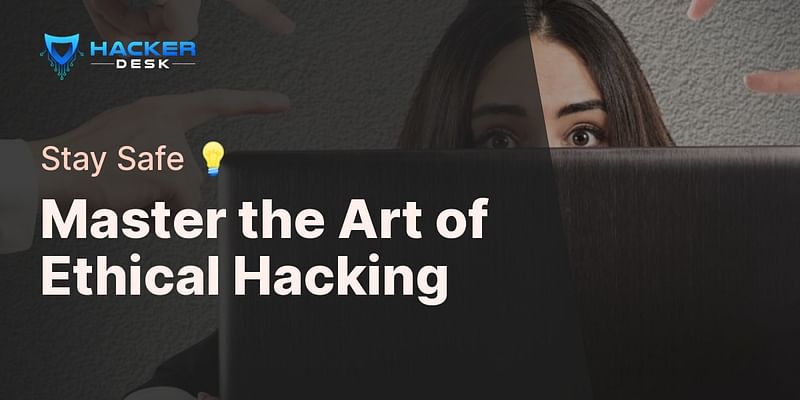Rhett Rowe is a seasoned expert in cybersecurity, boasting over 15 years of professional experience in the industry. He has collaborated with numerous Fortune 500 companies, aiding them in fortifying their digital infrastructures. Rhett is a Certified Ethical Hacker (CEH) and has earned his Master's degree in Information Security from Stanford University.
As a cybersecurity enthusiast, I understand the importance of protecting yourself while engaging in hacking activities. Hacking can be an exciting and educational endeavor, but it's crucial to prioritize your safety and security. In this article, I'll share some best practices to help you stay protected while hacking.
1. Use a Virtual Private Network (VPN): When hacking, it's essential to mask your IP address to maintain anonymity. A VPN encrypts your internet connection and routes it through a remote server, making it difficult for anyone to trace your activities back to you.
Top VPN Services for Cybersecurity
| VPN Service | Encryption Level | Server Locations | No-Log Policy |
|---|---|---|---|
| ExpressVPN | AES-256 | 160 locations in 94 countries | Yes 🟢 |
| NordVPN | AES-256 | 59 countries | Yes 🟢 |
| CyberGhost | AES-256 | 90 countries | Yes 🟢 |
| Surfshark | AES-256 | 63+ countries | Yes 🟢 |
| Private Internet Access | AES-256 | 78 countries | Yes 🟢 |
2. Set up a separate environment: Create a dedicated hacking environment using virtual machines or sandboxing tools. This isolates your hacking activities from your personal or work-related data, minimizing the risk of accidentally compromising sensitive information.
Benefits of Using Virtual Machines
3. Stay updated on security patches: Keep your hacking tools and software up to date. Developers frequently release security patches to fix vulnerabilities, and by staying updated, you can protect yourself from potential exploits.
4. Practice safe browsing: While researching hacking techniques or gathering information, be cautious about the websites you visit. Stick to reputable sources and avoid clicking on suspicious links or downloading files from untrusted sources. Malicious websites can infect your system with malware or compromise your privacy.
5. Use strong and unique passwords: Protect your hacking tools and accounts with strong, complex passwords. Avoid using common passwords or reusing passwords across different platforms. Consider using a password manager to securely store and generate unique passwords for each account.
6. Employ two-factor authentication (2FA): Enable 2FA whenever possible to add an extra layer of security to your accounts. This ensures that even if your password is compromised, an attacker would still need access to your second factor, such as a unique code sent to your mobile device.
7. Be cautious with social engineering: Social engineering is a common technique used by hackers to manipulate individuals into revealing sensitive information. Be skeptical of unsolicited emails, phone calls, or messages asking for personal or confidential data. Verify the identity of the sender before sharing any information.
8. Stay within legal boundaries: It's crucial to understand and respect the legal boundaries of hacking. Engage in ethical hacking or penetration testing only with proper authorization and within the confines of the law. Unlawful hacking can lead to severe consequences.
Remember, hacking should always be done ethically and responsibly. By following these best practices, you can protect yourself while exploring the fascinating world of cybersecurity. Stay curious, stay safe, and continue to expand your knowledge to make the digital world a more secure place for everyone.















